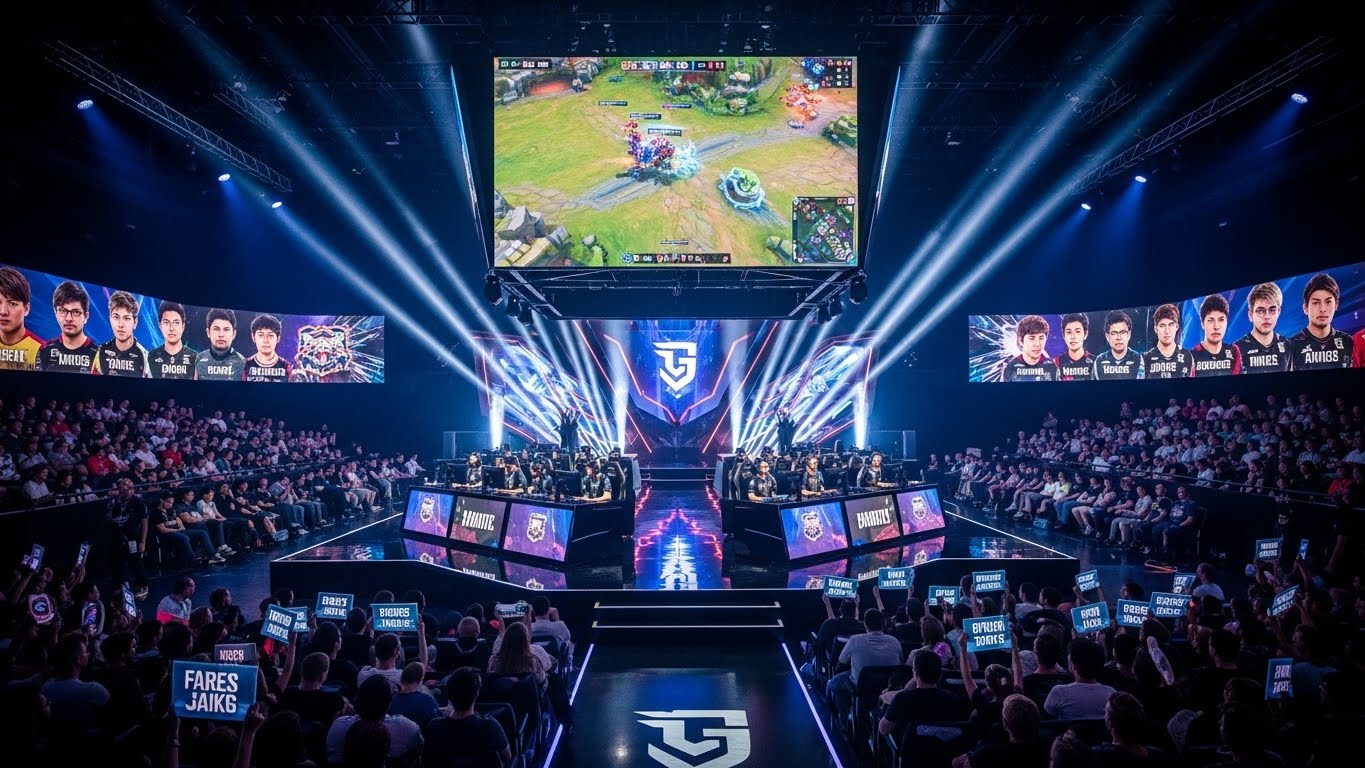Esports, once considered a niche hobby, has grown into a global phenomenon. Competitive gaming now rivals traditional sports in popularity, viewership, and revenue. With professional teams, international tournaments, and massive online audiences, esports has become a legitimate career path for talented gamers around the world. This blog explores the rise of esports, its impact, and the factors that make it a dynamic part of modern entertainment.
What is Esports?
Esports, short for electronic sports, refers to competitive video gaming where players or teams compete in organized events. Games range from strategy and shooter titles to multiplayer online battle arenas. Unlike casual gaming, esports requires skill, strategy, coordination, and mental agility.
Professional esports players train rigorously, often spending hours daily refining techniques, studying opponents, and mastering game mechanics. This dedication has transformed gaming into a professional discipline comparable to traditional sports.
The Growth of the Esports Industry
The esports industry has experienced exponential growth over the past decade. Large-scale tournaments now offer prize pools worth millions, attracting global audiences through streaming platforms and live events. Sponsorships, media deals, and merchandise have turned esports into a billion-dollar industry.
Streaming platforms have played a crucial role in this growth, allowing fans to watch matches in real time, interact with players, and follow their favorite teams. The combination of accessibility and entertainment has made esports a mainstream cultural phenomenon.
Popular Esports Games
Esports covers a wide range of game genres. Some of the most popular include:
- Multiplayer Online Battle Arenas (MOBAs): Games like League of Legends and Dota 2 focus on strategy, teamwork, and in-game decision-making.
- First-Person Shooters (FPS): Titles such as Counter-Strike and Call of Duty test players’ reflexes, accuracy, and coordination.
- Battle Royale Games: Games like Fortnite and PUBG emphasize survival, strategy, and adaptability in large-scale competitive environments.
- Sports Simulations: FIFA and NBA 2K allow players to compete virtually in sports, merging traditional athletic competition with gaming.
Each game requires unique skills and strategies, making esports diverse and appealing to a wide audience.
Benefits of Esports
Esports offers numerous benefits beyond entertainment. Competitive gaming enhances cognitive skills, including problem-solving, strategic thinking, and multitasking. It also fosters teamwork, communication, and leadership abilities among players.
Moreover, esports provides career opportunities. Professional players, coaches, analysts, and content creators can earn substantial incomes while pursuing their passion. The industry also supports careers in event management, broadcasting, marketing, and game development.
Challenges in Esports
Despite its popularity, esports faces several challenges. Mental and physical health concerns, such as burnout, eye strain, and sedentary lifestyles, affect players who train for long hours. Maintaining a balanced lifestyle is crucial for long-term success.
Another challenge is the need for broader recognition and regulation. While esports is gaining legitimacy, it still lacks standardized global governance, making consistency in rules and player welfare a concern. Addressing these issues is essential for sustainable growth.
The Future of Esports
The future of esports looks promising. Advancements in virtual reality, augmented reality, and cloud gaming will make esports even more immersive and accessible. Esports is likely to expand into education, training programs, and mainstream entertainment, further solidifying its position in popular culture.
With growing investment and media attention, esports will continue to attract talent, sponsorships, and audiences worldwide. The integration of technology, competition, and entertainment ensures that esports remains a dynamic force in the digital era.
Conclusion
Esports has transformed competitive gaming into a global spectacle. It combines skill, strategy, and entertainment while providing opportunities for professional growth and personal development. As technology evolves and audiences grow, esports is set to redefine the future of competitive sports and digital entertainment. The era of esports is not just a trend—it is the new standard for interactive, competitive gaming.

